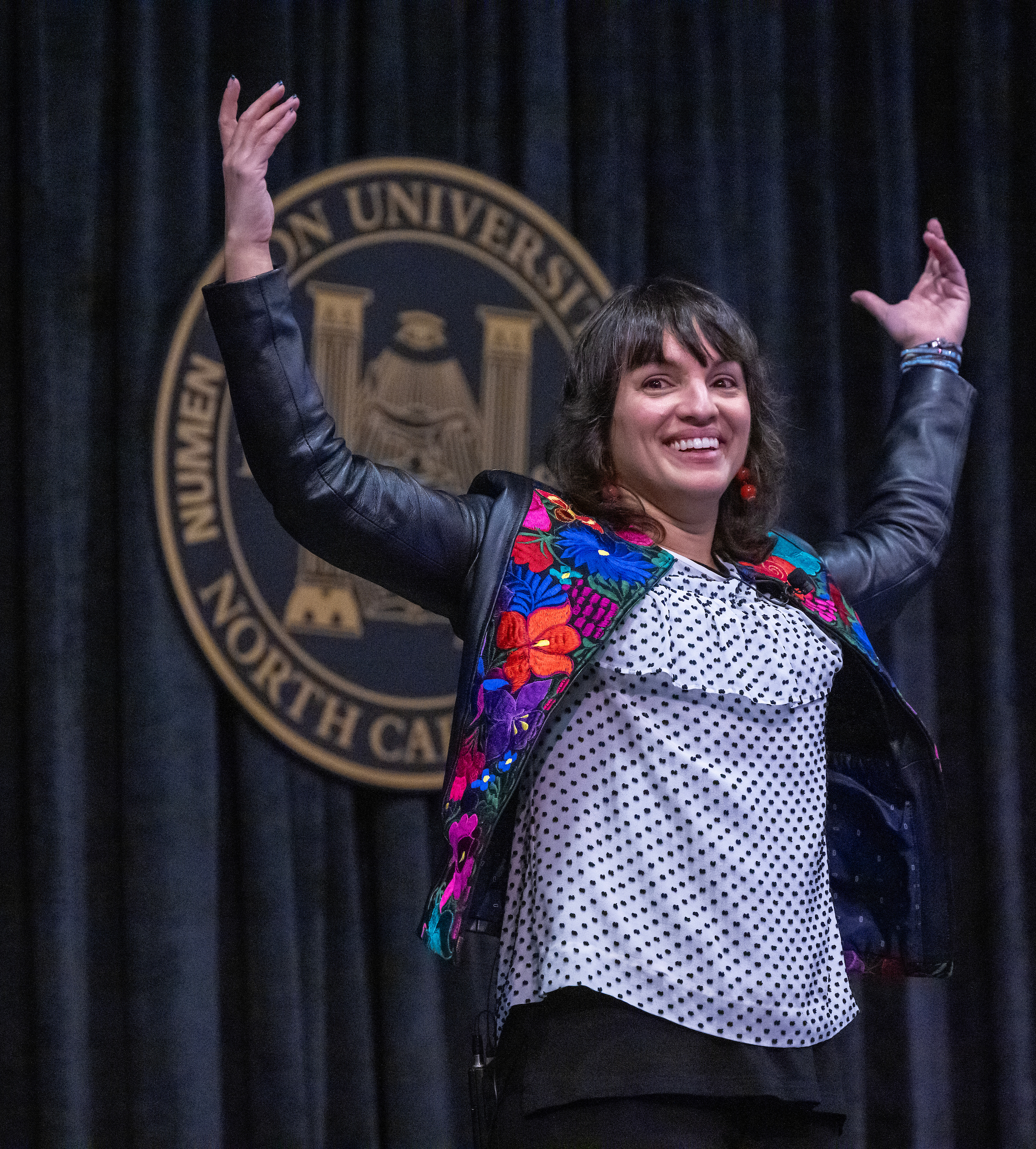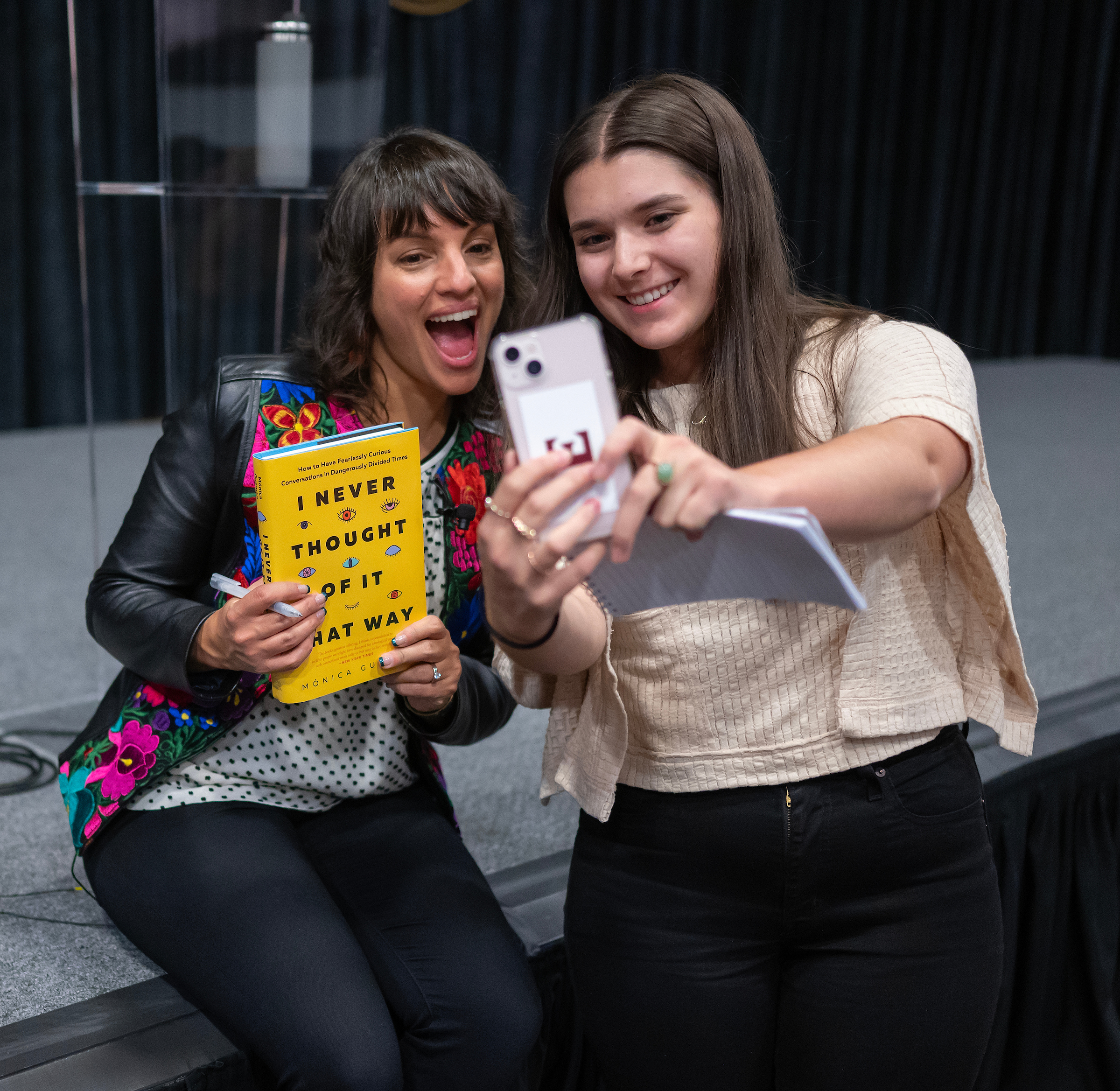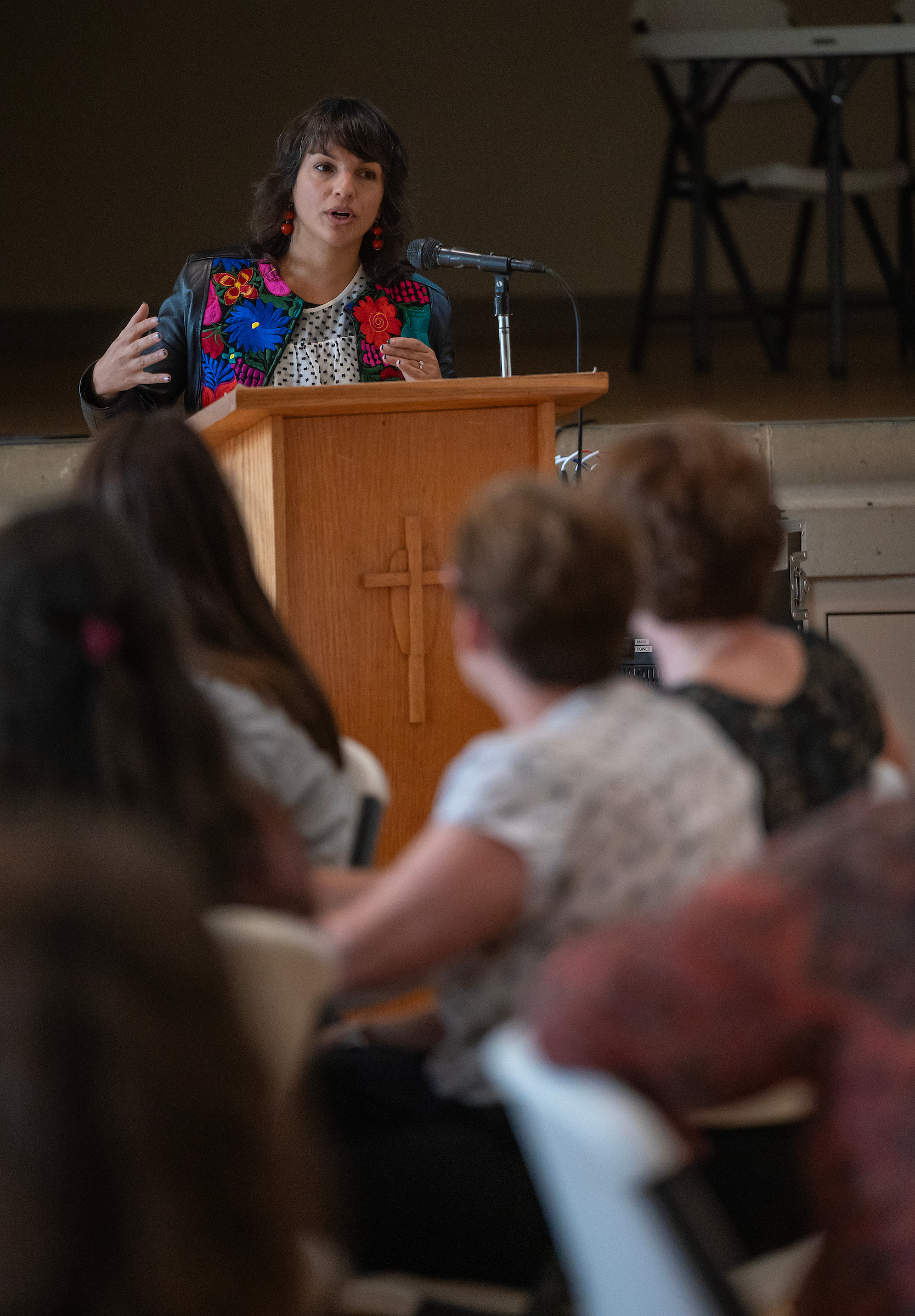Guzmán, the author of Elon's Common Reading selection, "I Never Thought of It That Way: How to Have Fearlessly Curious Conversations in Dangerously Divided Times," spoke to the Elon community on Sept. 21 for the 2023-24 Common Reading Lecture.
At the start of her Common Reading Lecture titled “Curious Questions, Sparking Conversations,” author Mónica Guzmán asked the hundreds in attendance in Alumni Gym to look around at those seated near them and realize that each person brings with them their unique viewpoint, just as complex as their own. It was a request rooted in the word “sonder,” which was created by author John Koenig to express “the realization that each random passerby is living a life as vivid and complex as your own.”

“I just find that kind of awesome and I’ve been putting myself into states of sonder in random moments during my day,” Guzmán said Thursday night to the crowd gathered in Alumni Gym.
Acknowledging the experiences and perspectives of others is the central theme of her book, “I Never Thought of It That Way: How to Have Fearlessly Curious Conversations in Dangerously Divided Times,” which was selected as the 2023-24 Elon University Common Reading. Each book selected reflects the values of the Elon Core Curriculum — curiosity, critical thinking, global perspective, and personal responsibility.
Leading up to Guzmán’s remarks, Paula Patch, assistant director of first-year initiatives for the Elon Core Curriculum, told the crowd that the challenge at the present moment is “people and communities and nations divided on opinion and ideology on just about everything. A solution — curiosity.”
Guzmán said as a society, we are so divided that we can’t see each other. This division has created a vicious cycle where there is more judgment across the divide with less engagement. When we make our judgments, we have less willingness to check those judgments with conversations with real people who can inform us with data or something that we may be able to relate to.
“We become blinded to what the issues are really about. And also to who people really are and where their perspectives really come from,” she said.
Guzmán is Senior Fellow for Public Practice at Braver Angels, the nation’s largest cross-partisan grassroots organization working to depolarize America; founder and CEO of Reclaim Curiosity, an organization working to build a more curious world; co-founder of the award-winning Seattle newsletter The Evergrey; and adviser for Starts With Us and the Generations Over Dinner project.
During her lecture, Guzmán recommended that members of the audience ask themselves a question when they find themselves blindly judging others for no reason: What kinds of people do I talk about but never with?

“Whoever is underrepresented in your life will be over-represented in your imagination,” Guzmán said. “This is the truth of a divided landscape.”
Bridging is the way to close that gap between our imagination and reality. That doesn’t need a fancy name or jargon, Guzmán said, but it takes finding moments to meet people where they are instead of confirming beliefs.
The first step is noticing the assumptions you tend to make about issues and about other people who disagree with you. Next is to ask yourself: What might I be missing and are there factors I hadn’t considered?
“Once you practice noticing your assumptions, questioning your assumptions and then asking questions that get to people’s paths, what you’re doing is opening your eyes a bit wider than the default settings that our society often encourages,” Guzmán said.
“You can see people and perspectives more clearly with more of their layers and more of the dynamism of what really makes them real and interesting and complex,” she added.
Guzmán urges people to question their certainty and their fears. The problem with certainty, Guzmán argues, is that it is “the archvillain of curiosity, because if you think you know everything there is to know, there’s no room to ask more questions.
If certainty is the archvillain to curiosity, then fear is the kryptonite, Guzmán said, “because it is bad in a very different way.” Fear is a natural response in instances of survival to keep us safe from things irreparably consumed by hate, Guzmán said. But fear also comes at a cost. When so much of your brain’s energy is put towards fighting back, the ability to be creative or inquisitive is hindered.
Taking a step back, sharing parts of your own story to better understand where common ground exists and asking the extra question are key to having difficult and meaningful conversations, Guzman said.
“Curiosity at a divided time with so many exaggerations and misperceptions is what delivers reality. It’s what ensures that we can access reality and then we can build a common truth together at a time of such different splinted, siloed realities that seem to all be at war with each other,” she said.

During her campus visit, Guzmán met with community members, leaders from the Burlington Masjid and churches serving Alamance County’s Black community, Power and Place Collaborative participants at the Elon Community Church. Danielle Lake, director of design thinking, and others convened a community book club around Guzmán’s book ahead of her Common Reading lecture.
Following her Thursday lecture, Guzmán led two workshops on Friday on reclaiming curiosity with students, faculty and staff.
Guzmán told the audience that the reward of being curious is the moments of insight when a bridge has been built from one-on-one conversation.
“When an insight has crossed that chasm between one complex mind and another, that’s an ‘I never thought of it that way’ moment,” she said.
Guzmán is the first to be featured in the 2023-24 Elon University Speaker Series this year. Visit the series website for more information.



